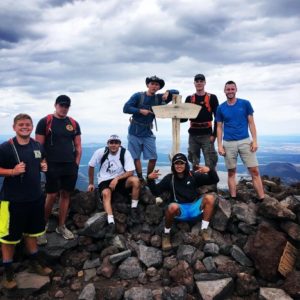When a person in recovery actively participates in volunteer work and community service, they can see a life outside of their addiction.
Addiction recovery often involves therapy, medication and participating in group settings. Volunteer or community service activities allow the person to make a difference in the community. Doing so will make a difference in their own life by giving back and giving the person a new perspective on life. Through these activities, the person learns to care for others while also helping heal themselves.
Physical Health Benefits
Many volunteer activities include physical activity, like lifting, carrying and walking short distances. These activities over time help boost a person’s physical health and are a great way to get back into exercising.
Participating in activities like this helps increase a person’s heart rate and blood circulation. It ensures an adequate supply of oxygen to the body, making an individual healthier while healing from addiction, which is often associated with a sedentary lifestyle. The exercise the person does while volunteering may not be the typical exercise one will get from going to a gym, but every kind of exercise helps.
Mental Health Benefits
Participating in volunteer programs and community service activities instills a sense of responsibility and well-being in a person’s life. They get to understand their worth in society and it gives them a purpose. Community service also helps build skills and connections with people in the community.
Being around other people with similar interests results in a positive support system during recovery. It encourages the person to remain sober by being active in rewarding activities in a safe environment away from substances or people using substances.
Community service also helps reduce anxiety and stress resulting in improved health and an increased mood. Having an increased mood can help people lead a healthier lifestyle by eating better, getting better sleep and exercising regularly, which helps with the overall recovery process.
Better Social Life
Through volunteer and community service work, the person gets to interact and meet people from different walks of life, which improves their social skills. Talking to others while working helps build confidence when in social situations. These situations give the person a chance to grow their skills in normal settings instead of in regulated environments like group sessions.
When volunteering and interacting with others outside of a recovery program, the person gets to use the tools they have learned to create friendships and relationships founded in sobriety. Participating in these activities allows the person to enjoy activities without relying on drugs to boost their mood. Overall, volunteering and community service will help the person in recovery practice what they have learned, be more social and become active in their lives.
Better Quality of Life
People in recovery often feel like they are getting a second chance on life. Once they quit drinking or taking drugs, their bodies begin the healing process. This is a time to commit to healthy habits that provide a meaningful lifestyle. Many recovery programs offer an environment that provides less stress and anxiety. They may get to experience nature or spend time helping others. When volunteering or working in the community, the person will experience what it feels like to be beneficial in society. This helps boost mood and provides a sense of self-worth. It also instills the act of responsibility and leadership. The person gets to show others they are living a healthy lifestyle while they are helping people overcome their own situations. Seeing the difference they can make in another person’s life or other groups can help lead to better choices in the future and a better way of living.
When a person in recovery actively participates in volunteer work and community service, they can see a life outside of their addiction. They get to interact with people in a sober environment that shows they can lead productive lives without needing to be high. When looking for a rehabilitation or treatment center, always find one that puts an emphasis on giving back, because this is a great way to keep the healing process moving forward. FBN
By Roy DuPrez
Roy DuPrez, M.Ed. is the CEO and founder of Back2Basics Outdoor Adventure Recovery in Flagstaff. DuPrez received his B.S. and M.Ed. from Northern Arizona University. Back2Basics helps young men recover from addiction to drugs and alcohol. DuPrez also is the president of Onlife Foundation, an organization helping to provide financial aid and program support to individuals on their path toward sobriety and recovery.
Back2Basics is an adventure recovery program, up to six months, for young adult males ages 18-30 with substance abuse issues looking for a positive and meaningful life. In the program, clients are exposed to a weekly combination of both wilderness adventures and residential programming. For more information, visit back2basicsoutdooradventures.com, call 928-814-2220 or email rduprez@b2badventures.com.





